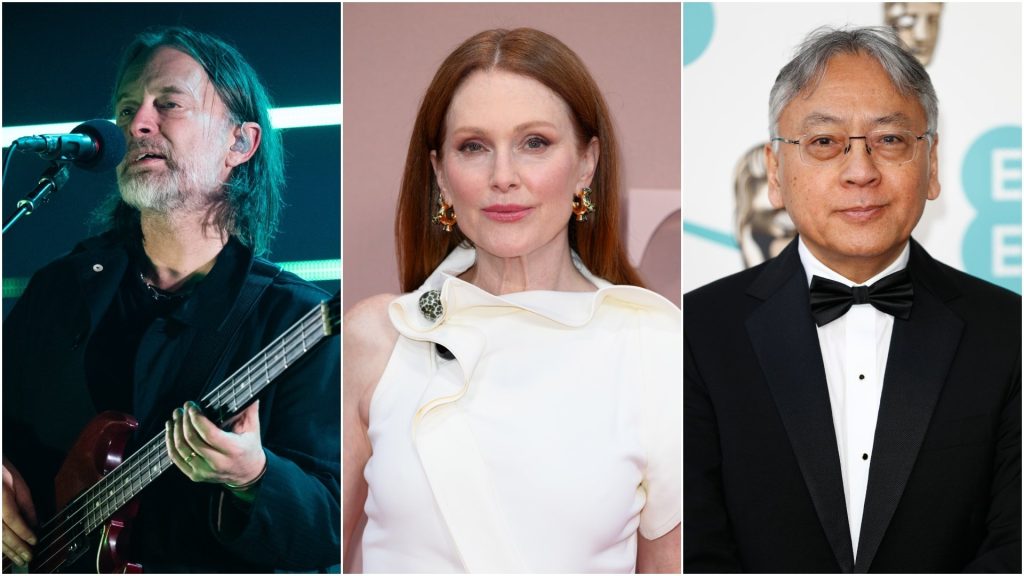An open letter signed by 13,500 creatives, including Radiohead’s Thom Yorke, actress Julianne Moore, and Nobel Prize-winning novelist Kazuo Ishiguro, denounced the use of their work to train AI.
“The unlicensed use of creative works for training generative AI is a major, unjust threat to the livelihoods of the people behind those works, and must not be permitted,” reads the brief letter. AI systems like OpenAI‘s ChatGPT train on preexisting text, images, video, and other creative materials.
Released Tuesday, the 29-word letter garnered signatures from a wide-vary of actors, musicians, authors, and organizations. Signatories include actor Kevin Bacon, comedian Kate McKinnon, author Ann Patchett, ABBA’s Björn Ulvaeus, as well as composers. The CEO of Hachette Book Group and the head of Songwriters of North America also signed on.
The letter comes after the Artist Rights Alliance (ARA), a non-profit advocacy organization, released a music industry-specific open letter back in April. “For many working musicians, artists and songwriters who are just trying to make ends meet, this would be catastrophic,” the letter said. “We must protect against the predatory use of AI to steal professional artists’ voices and likenesses, violate creators’ rights, and destroy the music ecosystem.” It received signatures from over 200 artists including Billie Eilish, J Balvin, Imagine Dragons, Stevie Wonder, Nicki Minaj, Pearl Jam, Katy Perry, The Jonas Brothers, Jon Bon Jovi, Julia Michaels, Ryan Tedder, and the estates of Bob Marley and Frank Sinatra.
Owners of work used to train AI have launches a series of copyright actions against AI scraping. Earlier this month Penguin Random House became the first of the big five publishers to change its copyright wording to target AI. The Recording Industry Association of America, which represents Sony Music Entertainment, Universal Music Group, and Warner Music Group, sued AI music start up Suno for training on copyrighted music, but Suno argued its protected by fair use. In 2023, The New York Times sued OpenAI and Microsoft for copyright infringement.







